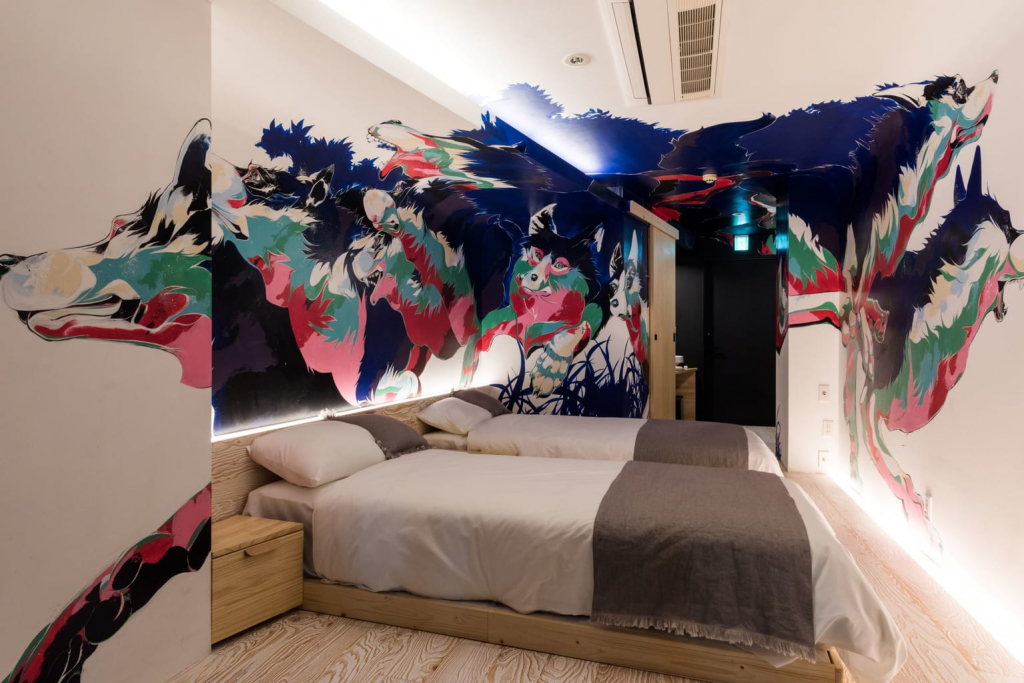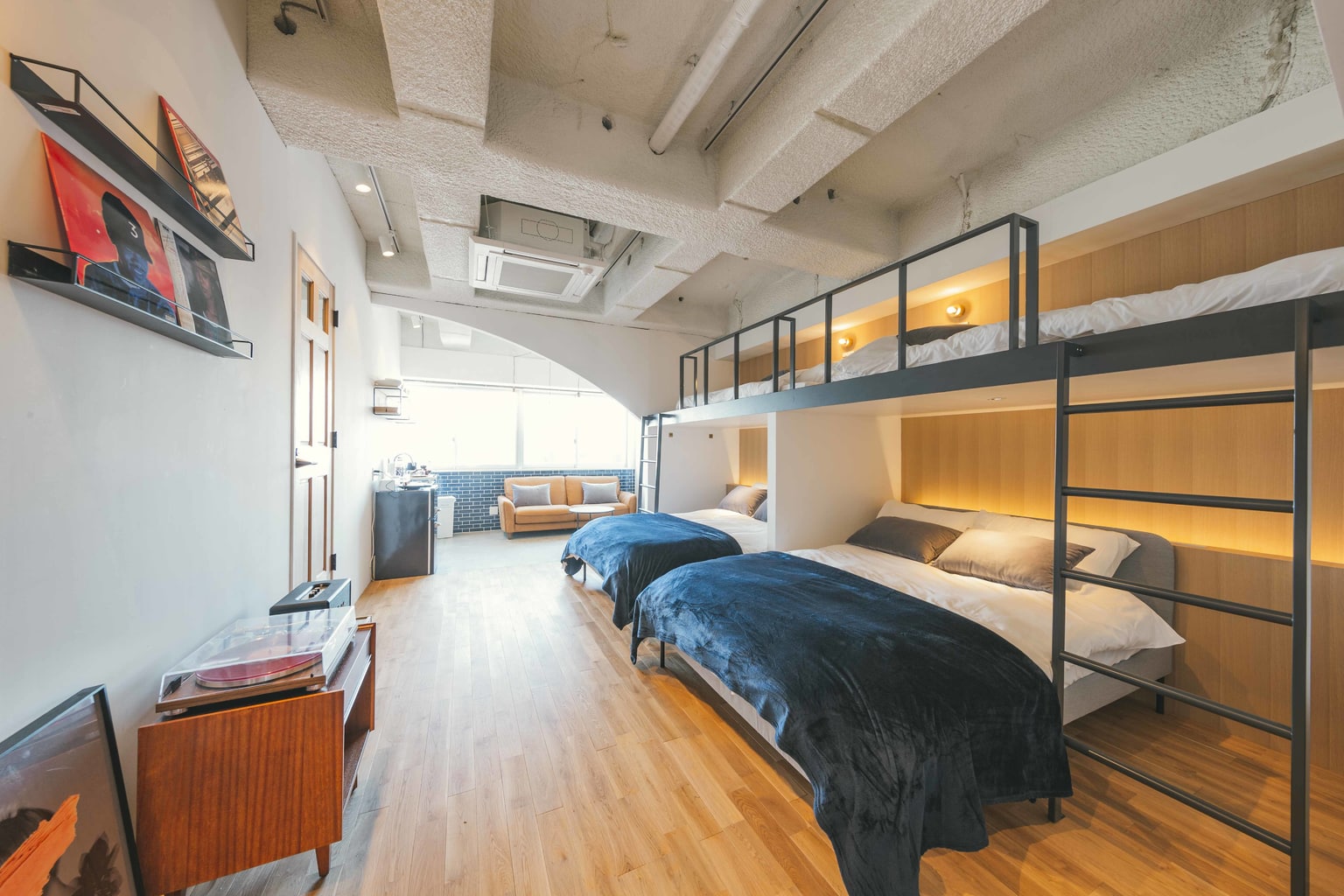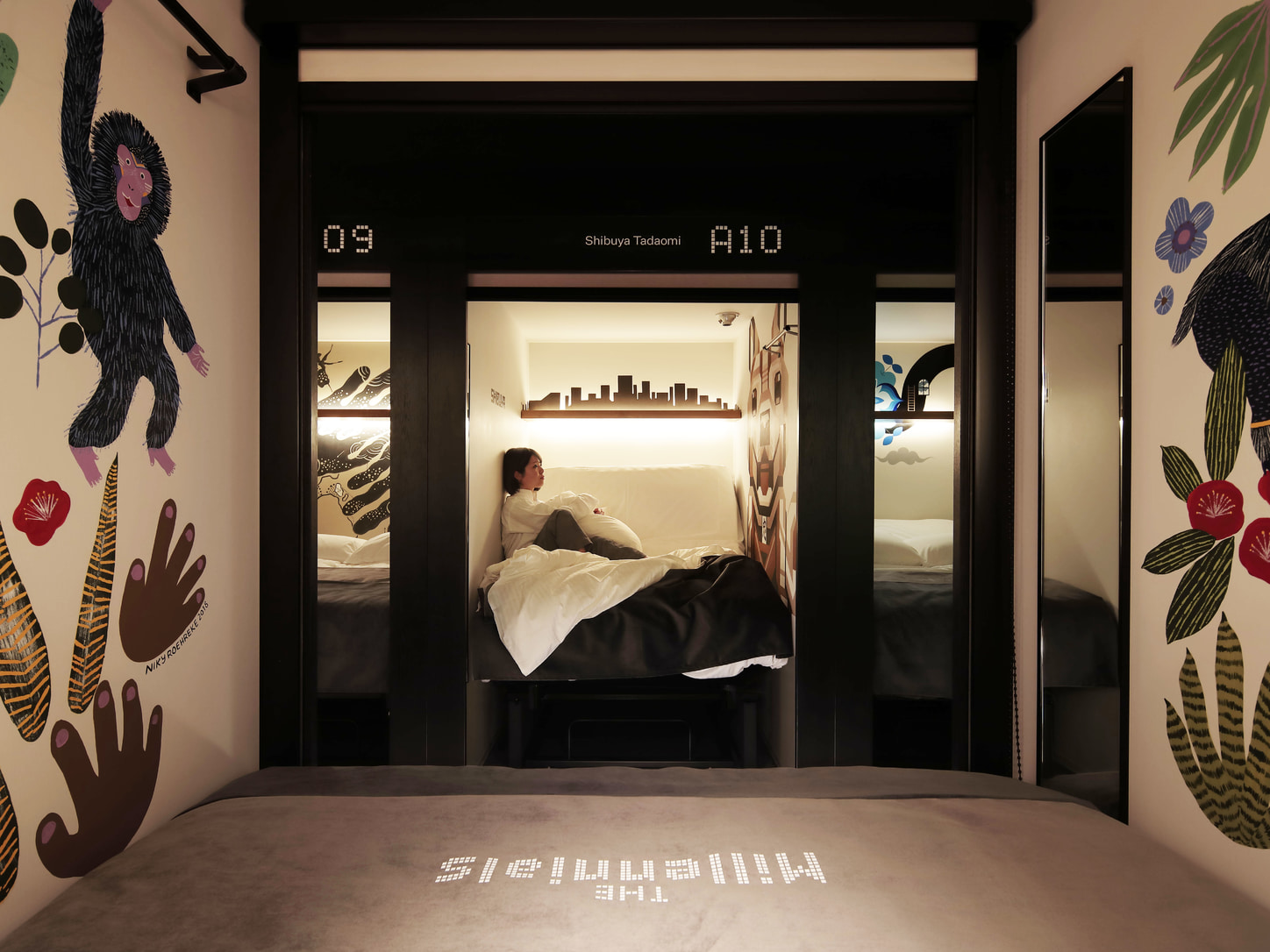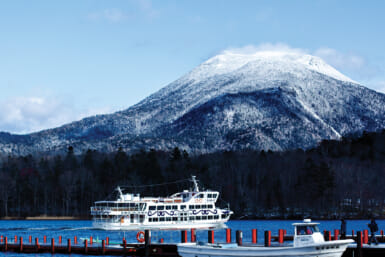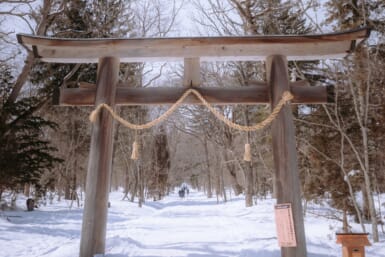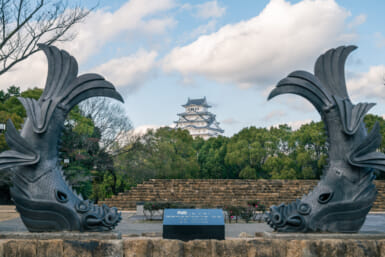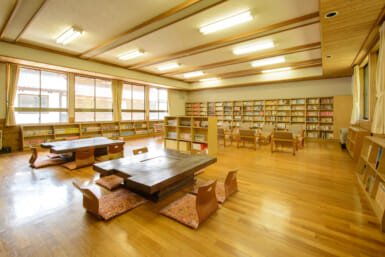Choosing the right accommodation can make or break your trip and affect the experiences Tokyo has to offer. This guide can apply to other big Japanese cities, though we researched and wrote it with travelers bound for the capital in mind.
We’ll spare you the introduction to your standard western hotels and jump right into the fun stuff. Here is a helpful compilation of the various accommodation types you can find in Tokyo and why you might or might not like them.
Airbnbs, Guesthouses and Hostels
Airbnbs are the most casual form of accommodation you can think of. They are fairly useful if you’re traveling in groups or if you’re looking to save a few dollars by sharing a kitchen, living space and bathroom with other travelers. The Airbnb website is also a great resource to find various experiences at a reasonable price, some that you can’t find anywhere else. Illi Shimokitazawa in the thrifty neighborhood is a great example of what you can find on the platform.
Guesthouses and hostels are a little bit different, but they offer the same level of casual hospitality. If you’re the type of person who wants to make friends at your destination, these are usually the best places to go. You’ll also find a lot of these through Airbnb (not a sponsor).
Airbnbs, guesthouses and hostels are especially enjoyable for parties who like to meet other travelers to chat with their hosts. This can add a certain ‘local appeal’ to the accommodation, though it can vary based on where you’re staying.

Business Hotels
Business hotels are less expensive than your regular hotels, though they offer about the same experience in terms of amenities. Usually, a business hotel room is smaller and offers minimal furniture. You’ll get a bed, a shower and more often than not a desk. After all, they are meant for businesspeople with plans to stay no more than a night or two. These are the closest you’ll get to a western hotel without breaking the bank.
The upside with business hotel chains is that they usually have many locations throughout the city, which gives you a lot of options when it comes to choosing the neighborhood you’d like to stay in. Business hotels are also very common near Narita and Haneda airports, making them a reasonable option for a first night if you don’t have much time after getting off the plane.
Cost-wise, business hotels tend to be about ¥3,000 more expensive than an Airbnb. Depending on the kind of comfort you’re looking at, it can be beneficial to take a look at both options. Not all business hotels are built the same, however, and some chains are better than others. Here’s a list of tried and tested business hotel chains we are happy to recommend:
Route Inn has hundreds of locations throughout Japan. In Tokyo, it has six locations a little bit on the outskirts of the city but still conveniently close to allow easy wandering.
Dormy Inn is known for offering a public bath open to all hotel guests at most of its locations, including those in Tokyo. Some even offer Japanese-style rooms, which can be quite fun if you’ve never stayed in one before and are looking to experience tatami floors for the first time without splurging on a ryokan (more on that below).
Like Route Inn, Super Hotel is a very straightforward business hotel chain. Some of its locations offer artificial carbonated hot springs, though this is not always a given so best check before booking.
Capsule Hotels
It’s a common misconception that capsule hotels are cheaper than Airbnbs or business hotels. While it can sometimes be the case, it’s not always true. In fact, it’ll depend on the hotel’s location and season, much like your standard room in an average hotel. They are definitely a better option if you don’t want to splurge too much, however. A few years ago, they were kind of defined as being this quirky thing, but actually, capsule hotels are great for those who really want to take advantage of every hour of their day.
As the name suggests, a capsule hotel room is as big as a single bed. You might have seen some publications describe it as a pod. If you’re claustrophobic, stay away from them as you might not like just how compact they can feel in person. They are really meant for you to crash in the evening and get up and running in the morning. You’ll find many of them located at Tokyo’s points of interest such as Ueno, Shinjuku and Shibuya, which means that you can really start your exploring from the moment you get out.
This accommodation option is best suited for solo or small group travelers, as few capsule hotels will offer capsules big enough for couples or families. Capsule hotels are also the least accessible option on this list, as many can require you to climb up to your bed and down again.
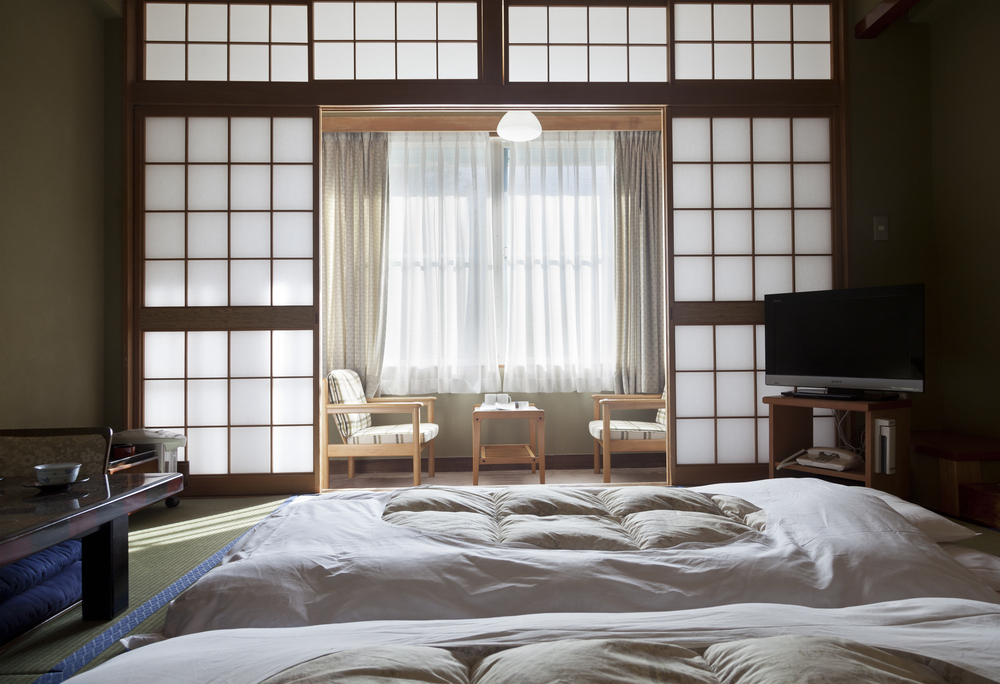
Ryokan
A ryokan is a traditional Japanese inn. While more common outside Tokyo, you can find a good amount in the city as well. For those looking to get a quintessentially Japanese experience, this is your best bet but be warned that it comes at a hefty price. There are a few things to keep in mind when booking a ryokan, and it’s definitely important to be familiarized with them before landing on a decision.
Most likely, you’ll have no private bath or shower room in your private quarters. Ryokan are often equipped with shared facilities including some showers and a few common baths or onsen. Without a bath, you’re left with a usually wide room with very little furniture. The floors are covered in tatami and at the center should be a wide table. Another significant factor is the lack of bedframes. At ryokan, guests sleep on futons that are laid on the tatami before bedtime by the staff while you’re out and about.
More modern ryokan such as many of the Hoshino Resorts locations do have a mix of Japanese and Western design styles, which can include a private outdoor bath, though these are generally considered high-end accommodations and do not follow the more general definition of a ryokan.
Ryokan does come with a few perks, however. Notably, most Japanese inns will offer packages that include two meals per day, usually a set menu for breakfast and dinner. Most if not all ryokan serve Japanese cuisine exclusively, which generally includes plenty of seasonal vegetables, fresh fish and seafood.
Ryokan can be expensive so be prepared to pay a little bit more for your stay. If a full week is too much, try booking a night or two during your stay.
Here are some ryokan-like accommodations in Tokyo we can vouch for:
A mix of Western bedrooms and traditional Japanese-style ones, Yuen offers a cozy and intimate ryokan experience in the heart of Tokyo. The Shinjuku location has a rooftop open-air bath where guests can take in the view of the capital while soaking away their troubles.
Hoshinoya Tokyo
If you’ve got money to splurge, do spend a night at Hoshinoya Tokyo. It’s located in the Otemachi neighborhood, just a short walk from the Imperial Palace and Tokyo Station. The hotel is famous for its luxury twist on the traditional ryokan experience.
Another high-end option is Hotel Gajoen, located near Meguro Station on the Yamanote Line. This accommodation is a popular wedding venue and event space. Its unique points all come from the Japan-inspired decor.
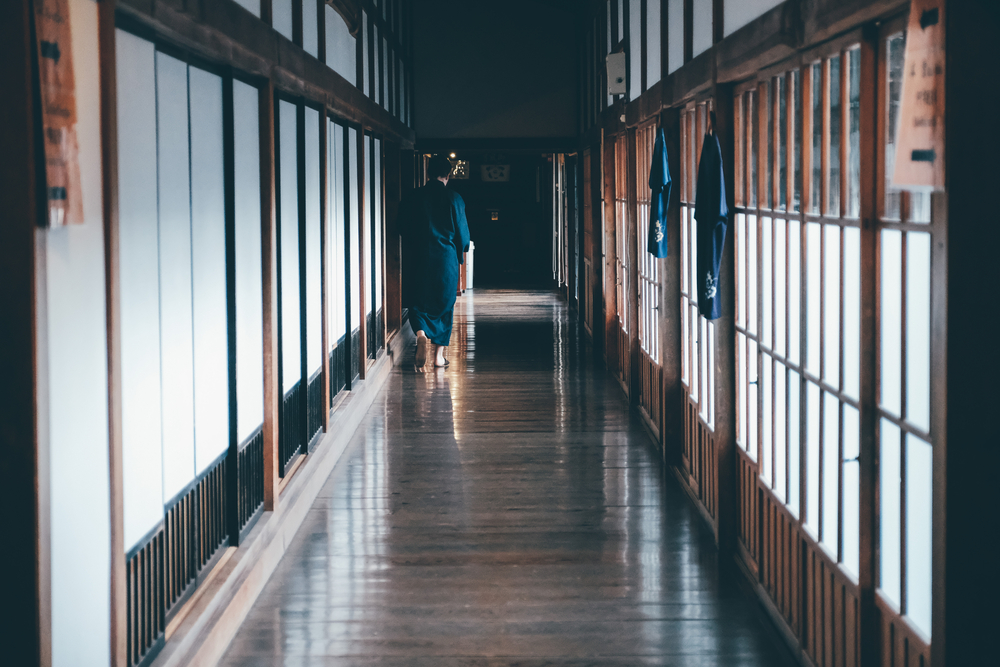
Temples (Shukubo)
Yes, you read that right. Some temples around Japan offer accommodation (shukubo in Japanese). These are rare in Tokyo but there is one temple where you can stay a night or two. It’s called Shiba Shoden-ji Temple and it’s located between Tamachi and Hamamatsucho stations on the Yamanote Line.
This particular accommodation is quite different from more standard shukubo, which is often more minimal and secluded. This is as close of an experience you can get in the city. Plus, it’s fairly affordable and leaves you with almost direct access to central Tokyo.
Learn more about this unique type of accommodation.
Boutique Hotels and Themed Hotels
A boutique hotel is quite hard to define if you don’t work in the industry. Now, I’m not an expert but simply put, a boutique hotel is a hotel that stands out through its design and artistry. In Tokyo especially, boutique hotels are often home to some rare bubbles on contemporary subcultures. This category includes art hotels and other accommodations such as Andaz Tokyo and Trunk Hotel.
Of course, with boutique hotels focusing on your experience inside the hotel, a lot of them usually have a good bar or restaurant, so you can expect the price to rise significantly here. I would recommend these hotels to those who are anticipating off-days and want to make sure they will be comfortable staying in. For Tokyoites, boutique hotels are also the perfect place to splurge on a staycation.
Here are some recommendations, tried and test by the TW team:
Made for tea lovers, this hotel is affordable, has impeccable interior design and is located at the heart of Shinbashi.
Located just a few minutes from Ikebukuro Station on the Yamanote Line, this hotel is unique in that every room — and we mean every room — is equipped with a personal sauna. If you didn’t already know, saunas are all the range in Japan at the moment.
BnA is a hotel that offers a comfortable place to rest with a twist. The hotel is fully decorated with artworks from up-and-coming artists. The latest location in Akihabara is a must-visit.
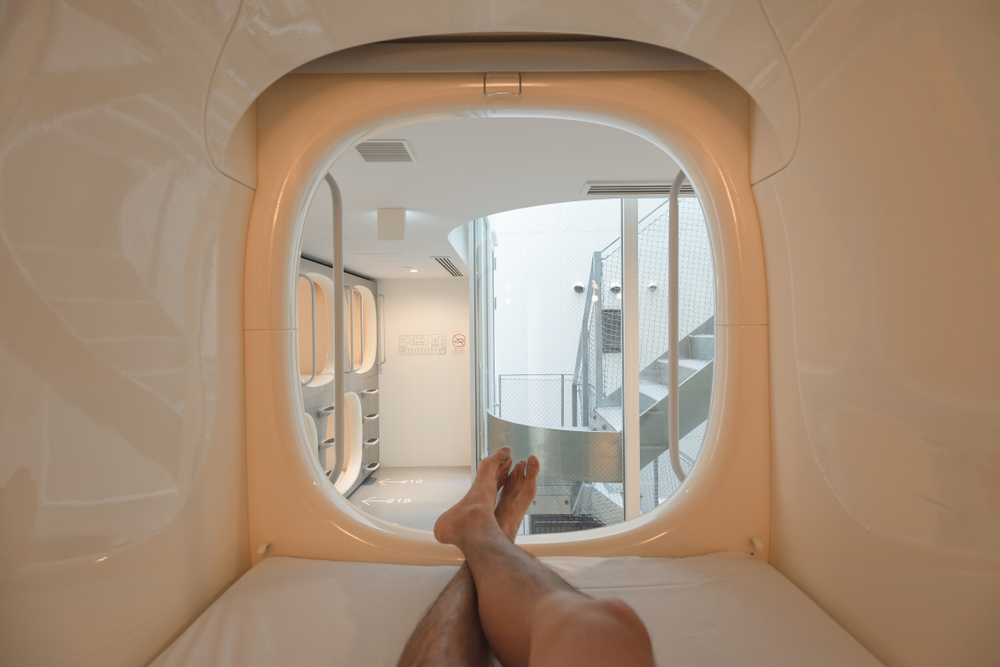
More Booking Tips
When is the best time to book?
Those who are looking to save a penny or two should consider traveling to Tokyo outside of peak tourist seasons, during the months of February, September and November. This doesn’t mean that there will be less to do, however. Tokyo is filled with events, festivals, and exhibitions all year long. As to how early you should book, this will depend entirely on how far in advance you’re preparing your trip.
What is the best neighborhood to stay in?
To this, we would ask: “What are you looking to gain out of your trip?” If it’s your first time in Tokyo, it might be tempting to look for accommodation in neighborhoods like Shinjuku or Harajuku. Instead, you could consider the proximity to the closest station and not so much the proximity to the places you want to visit. The top Tokyo sightseeing spots are all around the city and nothing says “living like a local” like commuting there.
How much should I spend on accommodation?
There are many kinds of travelers out there and in Tokyo, you’ll find hotels to accommodate them all. Staying in a very luxurious high-rise might be something that’s important to some and not so much to others. Consider your needs and what you consider to be comfortable. Keep in mind, though, that transportation will cost you more than you’re probably budgeting for (take it from us). For economical travelers, it might be smart to skip on the nice hotels and ryokan experiences in favor of having more money to see the city.
A sweet spot for those who still want a relatively nice room to crash in at the end of the day, budget out between ¥10,000 and ¥15,000 per night. Traveling outside of peak tourist seasons here will also help with finding cheaper deals.

